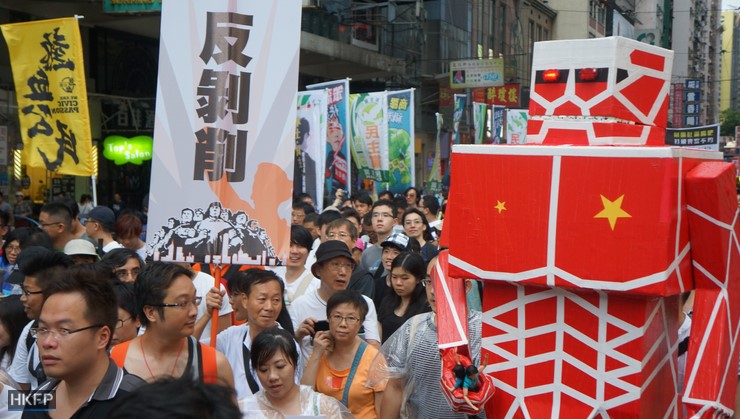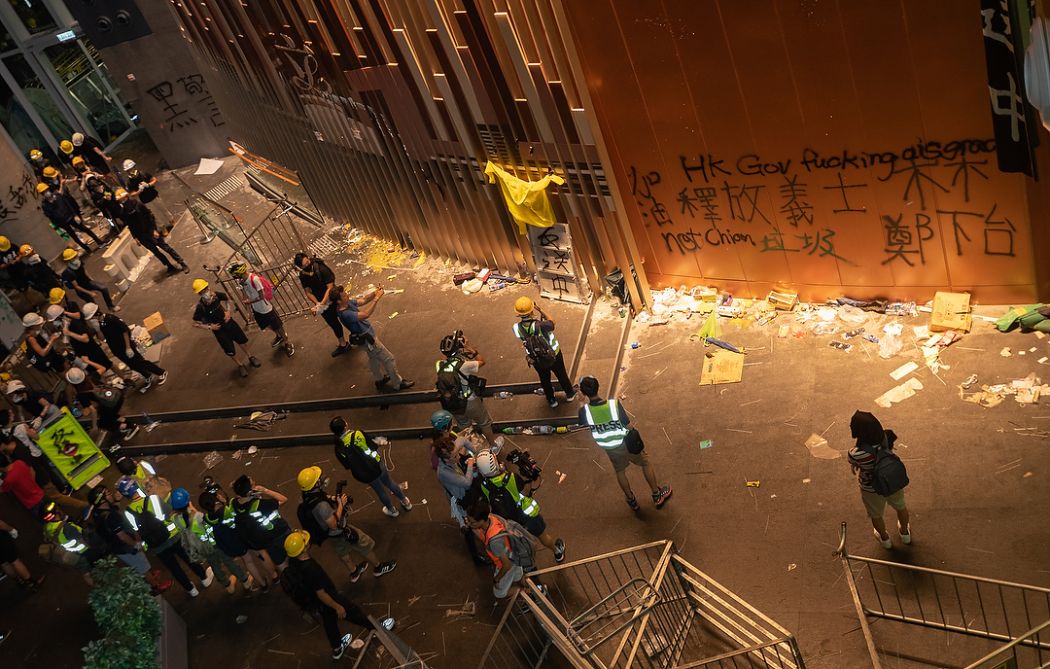“The world needs to change – it needs to change right now, and it’s up to us to change it” was my vision of life shaped by the overwhelming feeling of urgency that haunted me all through my early twenties.
Whenever another annual mass protest occurred on July 1, the people of Hong Kong were congratulated on their persistent efforts to fight for freedom by the international and local media alike. My young self, on the other hand, was engulfed by a crushing sense of frustration as I watched complacent faces telling themselves that simply repeating this pre-set annual route for the Xth time was a good enough attempt to convince the Chinese officials (of all people!) to give Hong Kong genuine autonomy. These rallies had become more of a dead routine than a real fight for freedom.

Year after year, we yelled a few chants and marched for a few hours, until we reached the pre-programmed destination, where we patted ourselves on the back for our fierce fight for change before returning home to our comfortable air-conditioned apartments. This was not bringing change.
In an ultra “radical” move for those times, we began to do sit-ins at the end of demonstrations, urging people to not just go home and forget about the cause after the half a day they sacrificed every year for their nation. We began to climb over police barricades put up to prevent us from using streets which were clearly public space. We tried to break into the (former) Legco Building as a symbolic act to take back our city’s law-making body. At no point did we instigate violence with our direct action.
But pro-democracy politicians and even other activists started to separate themselves from us and even condemned our actions. “We must remain ‘peaceful, rational, and non-violent’,” their repeated claims made our simple actions such as fighting for free assembly in public spaces seem violent and irrational.
Fast-forward 10 years: Google “Hong Kong protests”, and what do we see? A city on fire. Young people leaving for demonstrations fully geared up with homemade wooden shields, spray-paint cans in backpacks, ready to dig up the paved streets to hurl a few bricks. Arrested protesters snatched back from the police’s very hands by other protesters who didn’t exactly accomplish the task by pleading. People are risking everything to be out on the streets. This is not the Hong Kong I remember.
“What has happened to this nice little city in the last 6 months?” I am asked whenever someone realises I am from the city. “Breaking shops and burning police cars – isn’t that going too far?”

Of course, that is the natural conclusion to come to in the English-speaking world where all our sweat and tears are summed up in a half-page article titled “Hong Kong protesters once again clash with police”.
But any Cantonese speakers who track the movement through local news reports, as well as live videos taken by citizens on the scene, can tell you that their daily updates of Hong Kong are filled with images of police boots on squashed, unconscious faces… Swollen eye sockets that no longer hold intact eyeballs… Blood gushing out from a single lonely gap knocked out from a perfect row of young teeth… Journalists with cracked heads holding frozen expressions unexpectedly become a part of the story they were stopped from reporting… Volunteer medics needing first-aid more than protesters, running from the city’s very own team of uniformed aggressors with hidden badges and un-displayed numbers…
That, is going too far. Our “nice little city” has been destroyed by unchecked police brutality that we are forced to witness every day in Hong Kong.
One more student falls “mysteriously” from a tall building where the police were making illegal arrests.

What would you do? Stay safe by remaining a peaceful protester who cuts ties with any civil disobedience? Well, be prepared to get your grey hair dyed red by pepper spray with no warning (or blue by water cannon dye that causes chemical burns), even if you’re in a legal demonstration; or be stabbed at your local Lennon Wall where you merely wanted to put up a poster.
One more police vehicle rams full speed towards protesters and pedestrians alike.
What would you do? Stay safe by not joining any kind of protest altogether? Well, be prepared to get rounded up in random mass arrests when you were only shopping at your favourite mall; or see your kids who left home for school lined up with their hands behind their heads, with a wall in their face and a police gun in their back.
One more student is shot at point-blank range.
What would you do? Would you insist on abiding by the law, even when the law-enforcers do not? Would you condemn the radical actions of heartbroken parents who swear to avenge the countless victims of police brutality? Or would you stand up to the uniform-wearing criminals who are killing innocent children on the streets, even if it meant breaking the law?
The people of Hong Kong have made a choice. The world needs to change – it needs to change right now, and it’s up to us to change it.

Whether you are an English-speaking reader from overseas, or one who calls Hong Kong your home, when you next read about our clashes with the police, please remember this: a war has been waged on the people of Hong Kong, since the first time the police fired rubber bullets and tear gas at tens of thousands of unarmed demonstrators who had no plans other than chanting a few slogans on one of the city’s routine peaceful marches before they returned to their air-conditioned homes in an orderly fashion on the metro.
Now, the police have moved onto real bullets. This is not a war that the people of Hong Kong started. But it is a war that we must finish. This is the last chance we have to stand up for our homeland. There will be no other. Will you stand with us?
